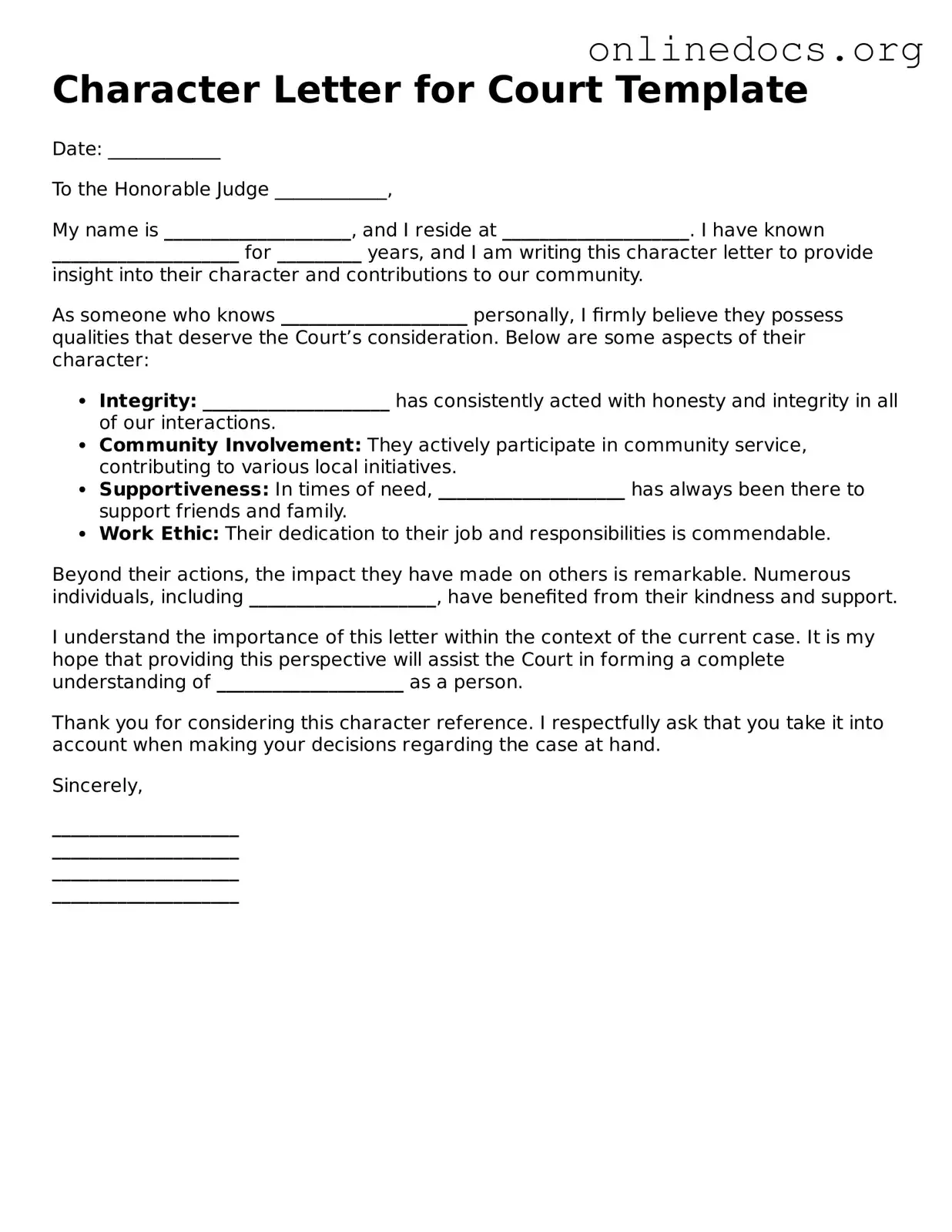The Character Reference Letter is similar to a Personal Reference Letter. Both documents aim to provide insight into an individual's character and behavior. A Personal Reference Letter is often used for job applications or school admissions, while the Character Reference Letter is specifically tailored for court situations. In both cases, the writer shares personal experiences and observations about the individual to help others understand their character.
Another document that shares similarities is the Employment Reference Letter. This letter is typically written by an employer or colleague to vouch for someone's professional abilities and work ethic. Like the Character Reference Letter, it focuses on the individual's qualities and contributions. However, the Employment Reference Letter emphasizes job-related skills, while the Character Reference Letter highlights personal attributes relevant to legal matters.
The Academic Reference Letter is also comparable. This type of letter is often used in educational settings, written by teachers or professors. It discusses a student's academic performance and potential. While the Academic Reference Letter focuses on educational achievements, the Character Reference Letter addresses personal traits that may impact legal proceedings, making both documents essential for different contexts.
A Recommendation Letter shares a similar purpose as well. It is often used in various applications, such as jobs or scholarships. This letter is written by someone who knows the individual well and can speak to their strengths. Both the Recommendation Letter and the Character Reference Letter aim to provide a positive perspective on the individual, but the former is broader in scope and not limited to legal matters.
The Affidavit of Character is another document that serves a similar function. This is a sworn statement made under oath, typically used in court. Like the Character Reference Letter, it attests to an individual's character and behavior. The key difference lies in the formal nature of the affidavit, which requires legal verification, while the Character Reference Letter is more informal and personal.
A Support Letter for Sentencing is also akin to a Character Reference Letter. This document is often submitted during sentencing to provide context about the defendant's character. It aims to influence the judge's decision by highlighting the positive aspects of the individual’s life. Both letters serve to portray the individual in a favorable light, but the Support Letter for Sentencing is specifically focused on the judicial process.
The Letter of Good Standing is another similar document. It is often issued by professional organizations or licensing boards to confirm that an individual is in good standing within their profession. This letter assures others of the individual’s integrity and reliability. While it serves a different purpose, both the Letter of Good Standing and the Character Reference Letter aim to validate a person's character.
Finally, the Personal Statement can also be compared to the Character Reference Letter. A Personal Statement is often required for college applications or scholarship opportunities. It allows individuals to express their personal experiences and aspirations. Like the Character Reference Letter, it provides insight into the individual's character, but it is more self-reflective and subjective.
